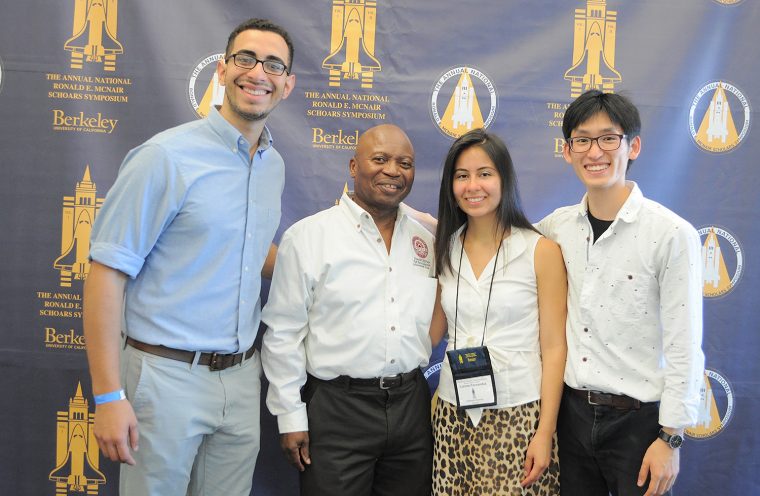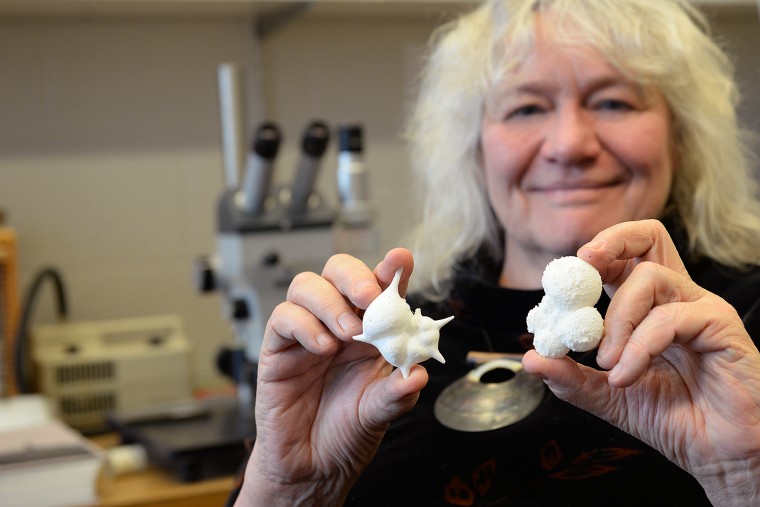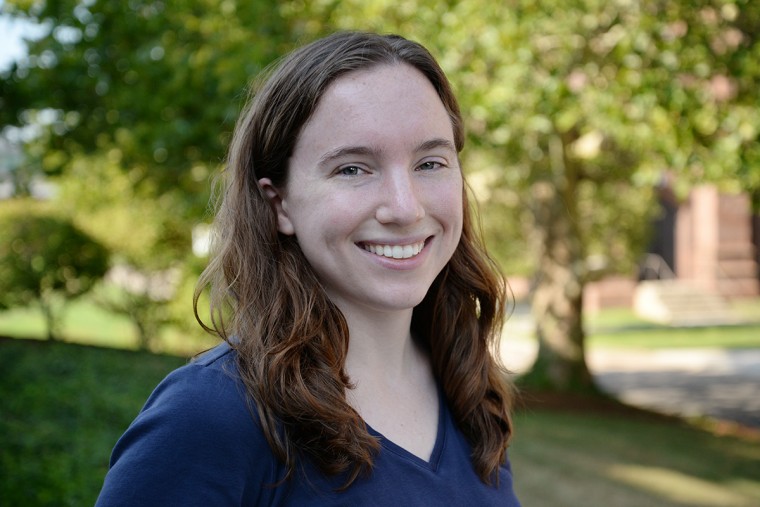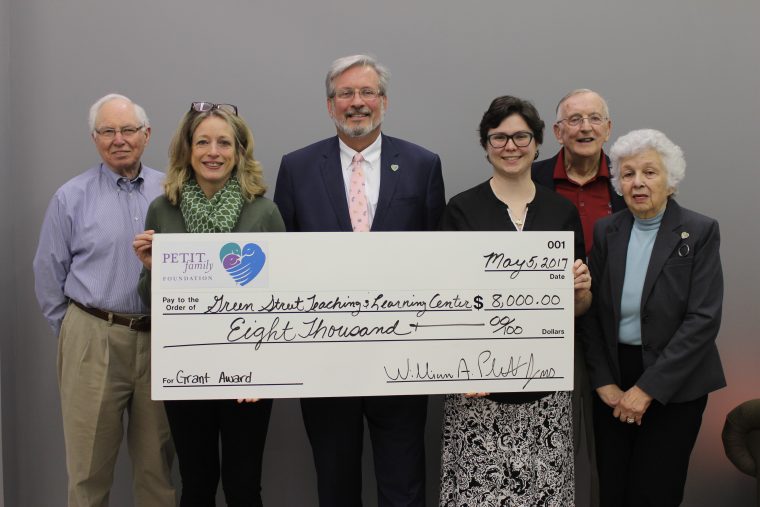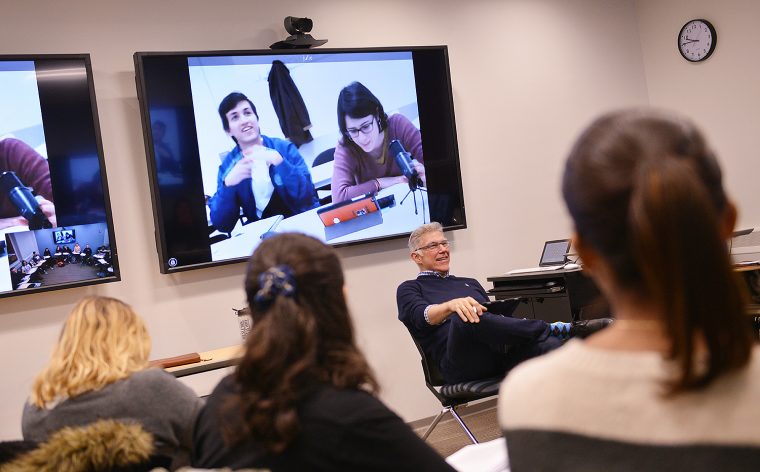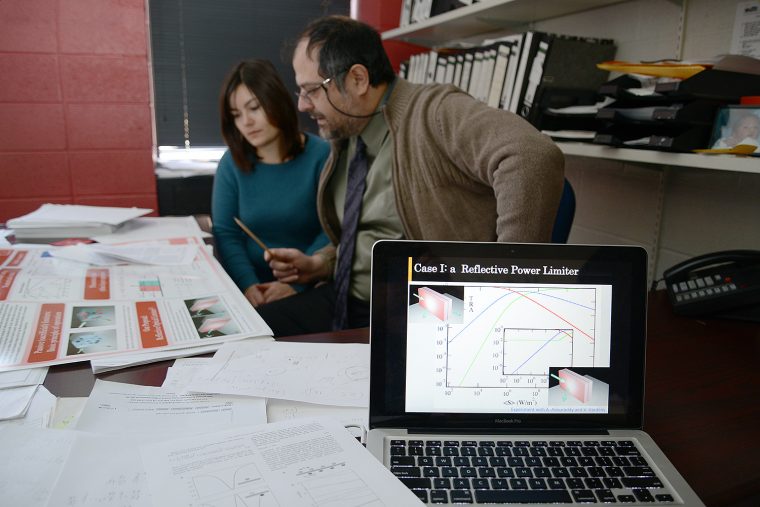Wesleyan professors Lisa Dierker and Jennifer Rose were recently awarded a $2.8 million grant from the National Science Foundation (NSF) to extend and disseminate their research on passion-driven statistics. The grant begins in the fall of 2018 and extends through 2023. Recognizing the rapidly increasing importance of data-oriented skills in the modern workforce, passion-driven statistics was developed as a novel approach to make statistics and quantitative methods courses more accessible and engaging, particularly for traditionally marginalized students. It moves away from canned exercises, toward more applied, real-world, project-based learning experiences. ”An empowering curriculum needs to rise to many challenges,” Dierker…
Mike Robinson, assistant professor of psychology, neuroscience and behavior, and integrative sciences, is the recipient of a $100,000 grant from the National Institute on Drug Abuse (NIDA). The grant will be awarded over two years, starting on July 1, and will support a study titled "Dissecting Cortical Contributions to Risky Decision-Making." Robinson and his research students will use optogenetics in rats to inhibit parts of the brain's prefrontal cortex during the decision-making process. "The aim would be to see how we make decisions when faced with risk," Robinson explained. "Are certain areas of the prefrontal cortex involved in tracking the outcomes of previous choices…
This semester, Wesleyan's Ronald E. McNair Postbaccalaureate Achievement Program, which assists students from underrepresented groups in preparing for, entering and progressing successfully through post-graduate education, received a five-year renewal grant from the U.S Department of Education. Wesleyan's program will receive $232,265 annually, for a total award of $1,161,325. The federal money is supplemented with an additional $50,000 per year from the President. Since 2007, the program has supported 135 students all of whom were first-generation college and low-income and/or from groups underrepresented in graduate school. The program provides research opportunities and funding, mentoring, graduate school admissions assistance and academic support…
On Nov. 28, Wesleyan's Patricelli Center for Social Entrepreneurship received a $10,000 grant from the Newman's Own Foundation to support student internships. "The gift from the Newman Foundation will be used to offer stipends to students doing social impact and entrepreneurship work during the summer," explained Makaela Kingsley '98, director of the Patricelli Center for Social Entrepreneurship. "We are grateful for the support of Newman’s Own and our other donors who make this work possible." Trustee Emeritus Bob Patricelli '61 P'88 P'90 is a board member for Newman's Own and has generously encouraged the foundation to support Patricelli Center programs over…
The availability of sufficient dissolved oxygen in seawater is critical for marine life, and places where oxygen falls below a critical concentration — or "dead zones" — are often associated with mass die-offs of fish, shrimp and other creatures. With future global warming, the oceans are on course to see progressively less dissolved oxygen available. Scientists currently use often not well-tested computer models to predict the expansion of dead zones, but a team of researchers from Wesleyan, University California Riverside and Syracuse University are hoping to use oceanic sediment samples to better predict where die-offs may occur next. Their study,…
On Aug. 2, Stephen Angle, the Mansfield Freeman Professor of East Asian Studies, professor of philosophy, together with colleagues at Notre Dame and Fordham, received a grant from the National Endowment for the Humanities (NEH) to support a two-week NEH Summer Institute for college and university faculty focusing on the idea of teaching "Philosophy as a Way of Life." Twenty-five faculty from around the country will be invited. The award—worth $137,045—is part of the NEH's recent $39.3 million in grants for 245 humanities projects across the country. The "Reviving Philosophy as a Way of Life: A NEH Summer Institute for…
Michelle Personick, assistant professor of chemistry, received a two-year doctoral new investigator grant from the American Chemical Society Petroleum Research Fund (ACS PRF) to synthesize and test new metal nanomaterials designed to make industrial chemical processes more energy efficient. Her study, titled “Tailored Bimetallic Catalysts with Highly Stepped Facets for Selective and Energy-Efficient Epoxidation and Hydrogenation Reactions," will be supported for two years with a $110,000 award. "Global energy consumption is steadily increasing, and the chemical industry is the second largest consumer of delivered energy," Personick said. "The chemical industry is unique in that it uses energy resources, such as petroleum…
This month, Wesleyan's Green Street Teaching and Learning Center received an $8,000 grant from the Petit Family Foundation to support the 2017 Green Street Girls in Science Summer Camp. The Girls in Science Summer Camp is open to all children going into grades 4, 5 and 6. Children perform experiments and explore chemistry, electronics and physics with Wesleyan faculty. Campers will meet college student mentors, learn about science careers, create scientific posters, and share what they learn with family and friends at a Science Showcase. The camp will be held from 8:30 a.m. to 4 p.m. from Aug. 7-11 at…
Jim Greenwood, assistant professor of earth and environmental sciences, and Bill Herbst, the John Monroe Van Vleck Professor of Astronomy, professor of integrative sciences, have received a research award from NASA in the amount of $550,000 for a program titled “Experimental simulations of chondrule formation by radiative heating of hot planetesimals." The grant will allow Greenwood and Herbst to hire a post-doctoral fellow who will work in Greenwood’s lab in Exley Science Center to reproduce chondrules — small spherules of melted rock that formed early in the history of the solar system and hold clues to the origin of the planets.…
Antonio Gonzalez, professor of Spanish and director of the Center for Global Studies, is comfortably seated in front of a semicircle of 11 students. He holds an iPad Pro that controls two large screens on the wall behind him and enables him to move effortlessly, seamlessly from Google Maps, to video clips, to text he can annotate on the iPad. All the while he converses in Spanish with his students about a movie that tells the story of a Moroccan woman repatriating the body of her brother after he died crossing the Strait of Gibraltar in a small boat. In…
The National Endowment for the Arts approved more than $30 million in grants as part of the NEA’s first major funding announcement for fiscal year 2017. Included in this announcement are Art Works grants of $30,000 for Wesleyan's Center for the Arts' Breaking Ground Dance Series and $25,000 to support Wesleyan University Press in the publication and promotion of books of poetry. The Art Works category focuses on the creation of art that meets the highest standards of excellence, public engagement with diverse and excellent art, lifelong learning in the arts, and the strengthening of communities through the arts. The…
With support from the Office of Naval Research, researchers in Wesleyan's Physics Department are working on ways to protect optical sensors (for example, the human eye) against laser-induced damage. In August, Tsampikos Kottos, professor of physics, professor of mathematics, received a three-year grant from the Office of Naval Research to further his designs of “Reflective Microwave Limiters." Typical microwave limiters have the ability to block excessive radiation through absorption. However, absorption can lead to overheating, eventually causing the destruction of the limiter. Kottos studies reflective power limiters with his graduate student Eleana Makri and Postdoctoral Research Associate Roney Thomas. The team hopes to develop realistic designs of microwave…




